WOMEN’S DAY STRIFE
There’s nothing to celebrate on 9 August as taxi strike drags on, say local Cape Town women
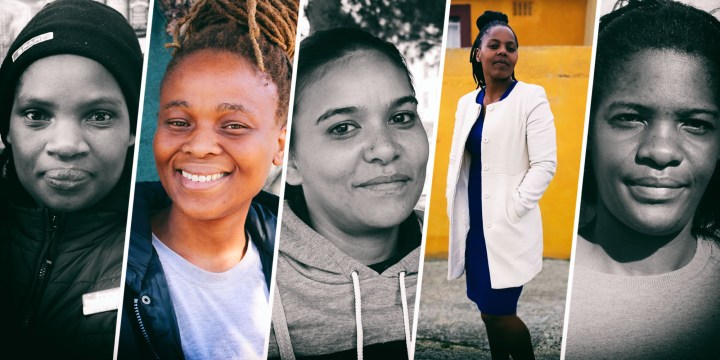
Missed work, lost learning and closed schools are just some of the challenges Cape Town residents are facing this Women’s Day. As the Western Cape taxi strike entered its seventh day, Daily Maverick spoke to local women about why they think 9 August 2023 is ‘nothing to celebrate’.
Women’s Day dawned bright and warm in the City of Cape Town on Wednesday. This year’s commemoration of the 1956 march to the Union Buildings to protest apartheid pass laws for women was being held under the theme “Women’s Socioeconomic Rights and Empowerment: Building Back Better for Women’s Improved Resilience”.
But for many women living in and around Cape Town, there was little to celebrate. Unable to move freely or trapped in long commutes while the taxi strike dragged on, they could only do their best to get by on what felt like “just another day”.
There is frustration and anger after days of disruption affecting work, learning and childcare. Some women have questioned the value of Women’s Day when they and their contemporaries continue to face the same systemic problems, year after year.
Read more in Daily Maverick: Western Cape taxi strike Day 6 – Ramaphosa’s Women’s Day address shifts to Pretoria from ‘high-risk’ Cape Town
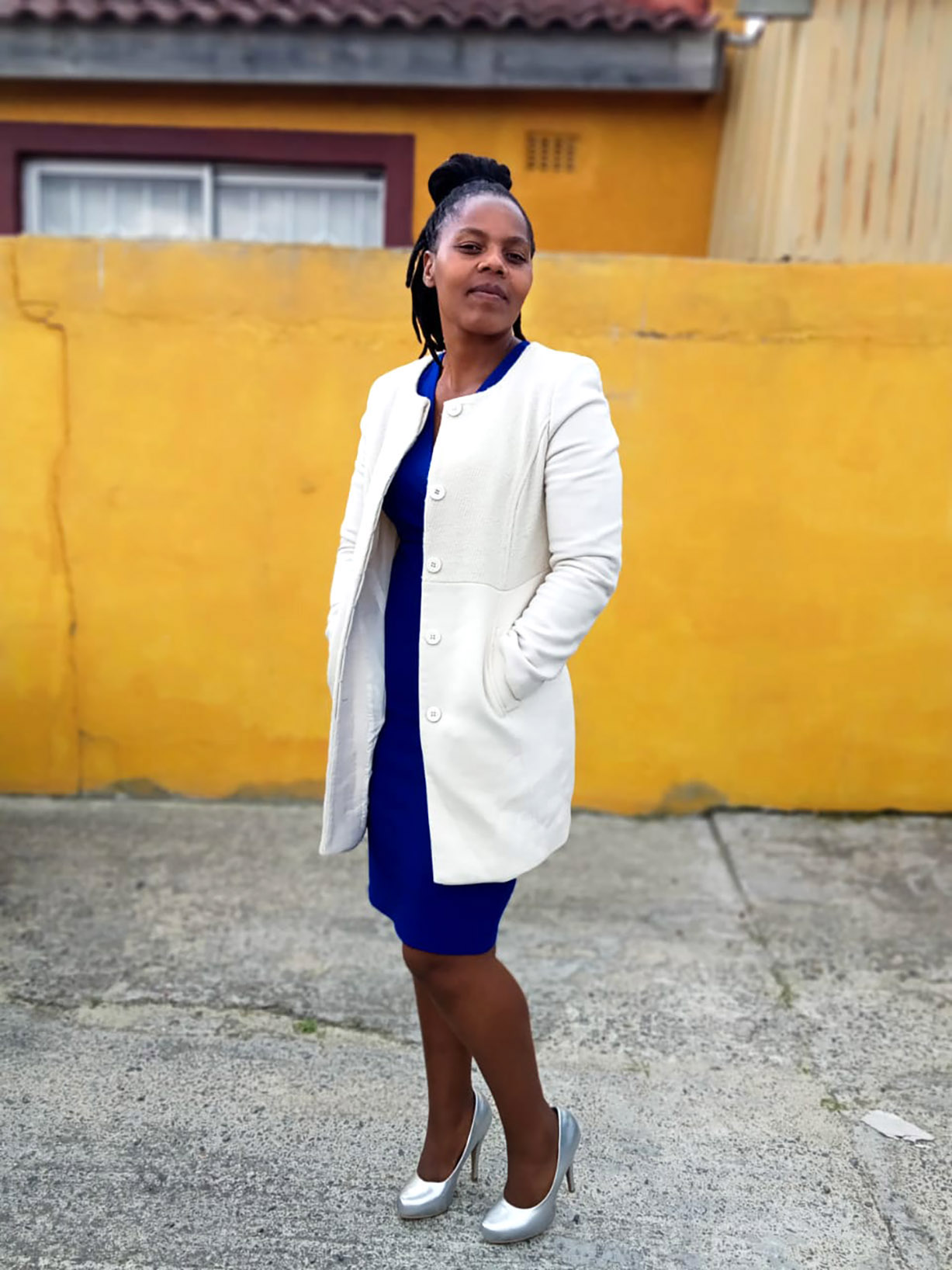
Nosisa Bovana, a Varsity College student living in Khayelitsha, says she feels unsafe in her home and has nothing to celebrate this Women’s Day. (Photo: Supplied)
‘I have nothing to celebrate’ – Nosisa Bovana
Nosisa Bovana, a student at Newlands Varsity College who lives in Kuyasa, Khayelitsha, is entirely reliant on taxis for transport. Since 3 August – when the taxi strike started – she has been unable to attend classes or even leave her neighbourhood.
“It is not safe for us to go out. Ever since the strike started, we have been staying at home. We cannot go anywhere because we’re afraid for our life. If you go outside, what is going to happen?” she said.
“[When] the strike started on Thursday, people had to walk from wherever they were because there was no transport. Even the Golden Arrow buses were full. We ended up coming home at 10pm … So, ever since then, I decided to sit at home because it’s not safe for me.”
Women’s safety, which was already poor where Bovana lives, has only become worse since the strike began, she told Daily Maverick. Many women have been forced to walk to places like the local mall, putting them at risk of being targeted by criminals.
“To be honest with you, I have nothing to celebrate [this Women’s Day] … We are staying in an informal settlement where there is no water, there’s no electricity, there are no toilets, and in fact, absolutely nothing. So, what’s there to celebrate for me?” she said.
“We are not safe even in our homes. For example, I’m staying alone and I am not safe here. Some people are trying to take advantage, you have to fight … You are not safe because you are a woman and you’re staying alone.”
Bovana said no one seemed to care about the difficulties residents faced in Khayelitsha, even though people were aware of the high rates of shootings, robberies and other crimes in the area.
“A lot has happened here. People are damaged by the strike [but] no one cares about the locations. I’m not only talking about Khayelitsha. I’m talking about Mfuleni, Crossroads … there is no one who cares.
“It seems like the people who are safe and secure are those people who are living in town, and we cannot afford to stay in town. So, if we’re not paying, we’re not protected,” she said.
“There are people who hijacked the strike. They are looting, they are robbing people, but the national government is silent about that … I would like to say to government they need to prioritise us because they are neglecting us. When they want our votes, they are coming to us, but no one cares about how we live or what we do.
“Our government is failing African women in South Africa … This is our month, but look at what is happening now in August. This month is supposed to be Women’s Month. There’s supposed to be peace, but it’s chaotic.”
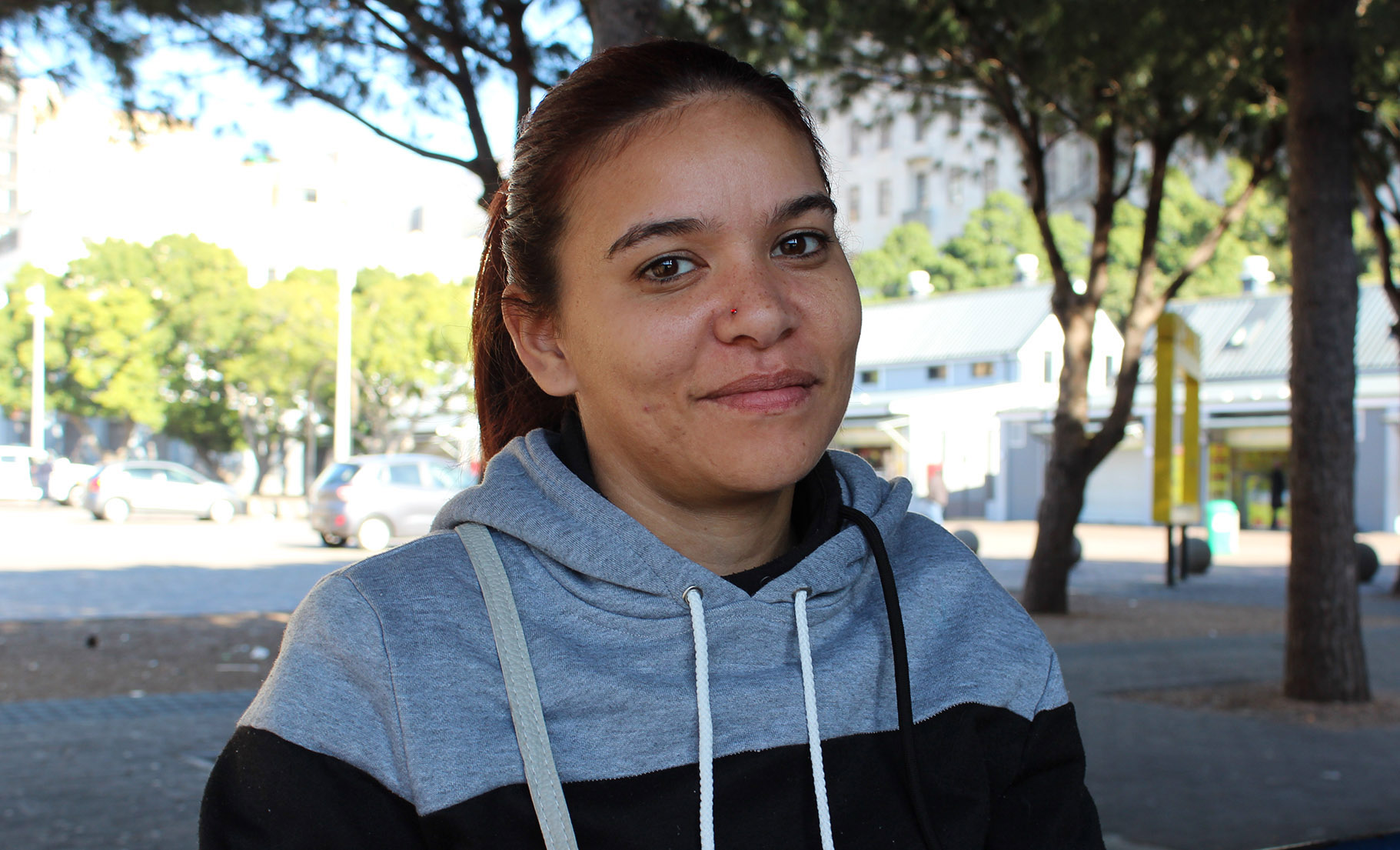
Leechae Abrahams, a call centre manager, says she would like to see more appreciation for women, especially mothers, around Women’s Day. (Photo: Tamsin Metelerkamp)
‘Our women are still not being put first’ – Leechae Abrahams
Since the taxi strike started, it has been a struggle for Leechae Abrahams, a call centre manager living in Belhar, to get to and from work.
When Daily Maverick spoke to her at the Golden Arrow bus station in the Cape Town CBD on Wednesday, she had been waiting for a bus for over two hours.
“I have been affected by the strike because it’s a struggle to get to work. If there is a bus available, the bus is too full. Not being able to get to work is a problem, and business owners do not always want to understand the fact that we cannot make it. Even today it’s a struggle because I have finished work for a long time and I’m still sitting and waiting,” she said.
The strike has also affected Abrahams’ two children, who have not been able to go to school or crèche due to a lack of transport.
“Now their grandma has to look after them … she has to sacrifice her days to take care of them. Obviously, they get bored and tired of being at home,” she said.
In South Africa, women play a major role in society, according to Abrahams. They make up a significant proportion of the working class, and many are entrepreneurs. However, she says they remain underappreciated.
“To me, Women’s Day was never really a thing, especially in Cape Town, because our women are still not being put first. So, it’s just an ordinary day. There’s no change; we don’t feel like it is supposed to be a woman’s day,” she said.
“[I would like to see] more appreciation for women, especially mothers. Yes, we do have a Mother’s Day … and especially mothers should also be celebrated on this day because of what we put forth for not only our children but the next generation as well.”
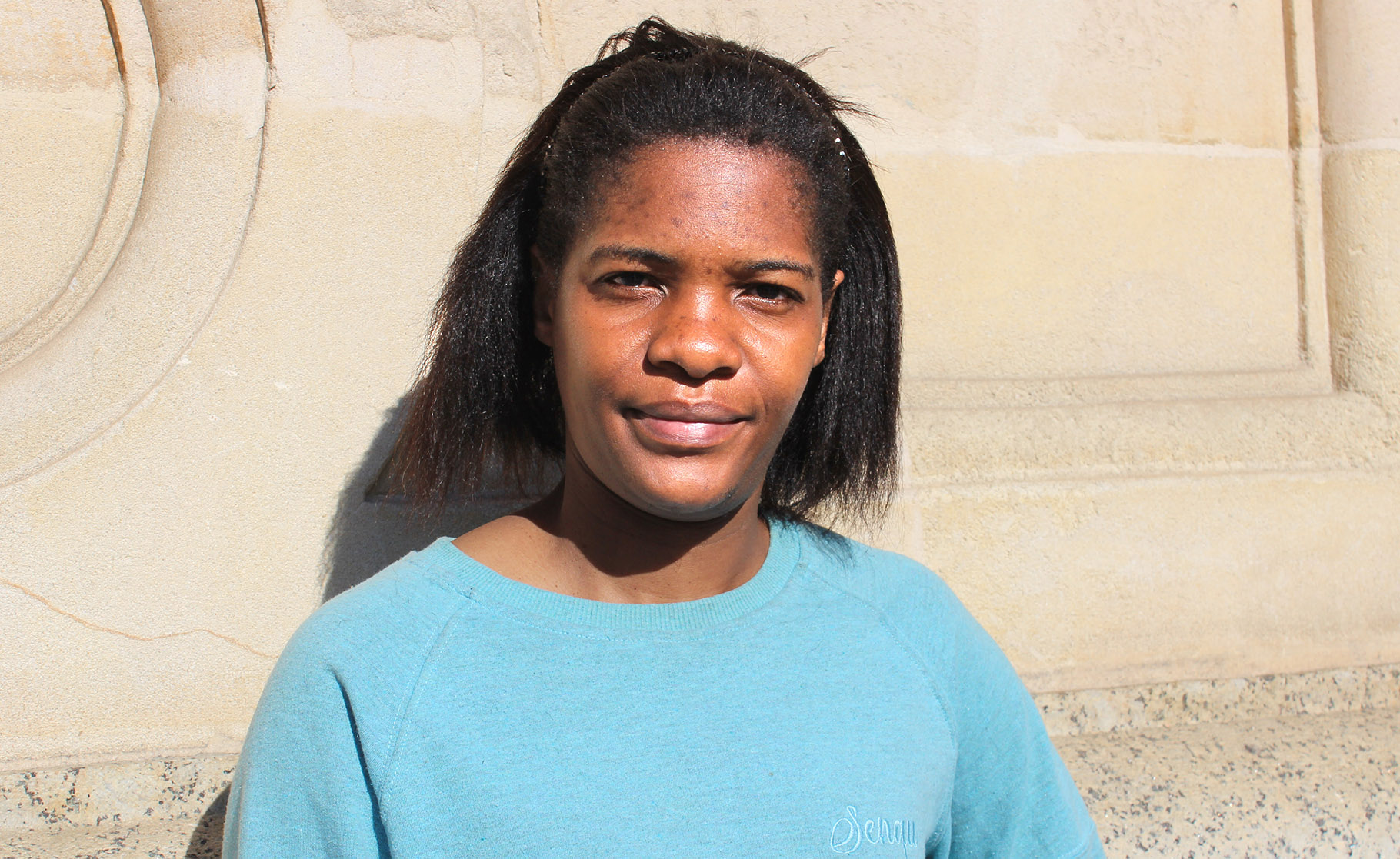
Angela Banda, a Cape Town entrepreneur, says it has been difficult working with her four children at home due to the taxi strike. (Photo: Tamsin Metelerkamp)
‘Women have to be heard’ – Angela Banda
Angela Banda is an entrepreneur with a bridal boutique and a mother of four children. While she does not usually use taxis, the strike has affected her as her children have been unable to get to school.
“My kids are not going to school any more, despite using a private car. You are afraid to drive, so you’d rather stay home and be safe,” she told Daily Maverick.
“Sometimes, when kids are at school, we find time for ourselves, we rest. But when we have them at home, it’s hectic.
“Women’s Day has lost value [to me] because, like today, I know my kids would have said, ‘Mummy, we are taking you somewhere’, but I can’t go anywhere … So, I haven’t enjoyed my Women’s Day, honestly. It’s not like the previous years where we were free to move around and have fun with the kids.”
There was a need for women to be heard within society, said Banda. Too often, women are being placed under enormous pressure while also being undervalued.
“There are a lot of things that are happening to women, but the government, the society, they just believe that since it’s happening to a woman, it’s normal for those kinds of things to happen,” she said.
“[Change] starts with our government. If they talk a lot about respecting women, that women [should] be heard, then it means the message will get to the majority. People are going to take it from the government … If the government is at the forefront, then it means this is the right thing to do. We need to follow that.”
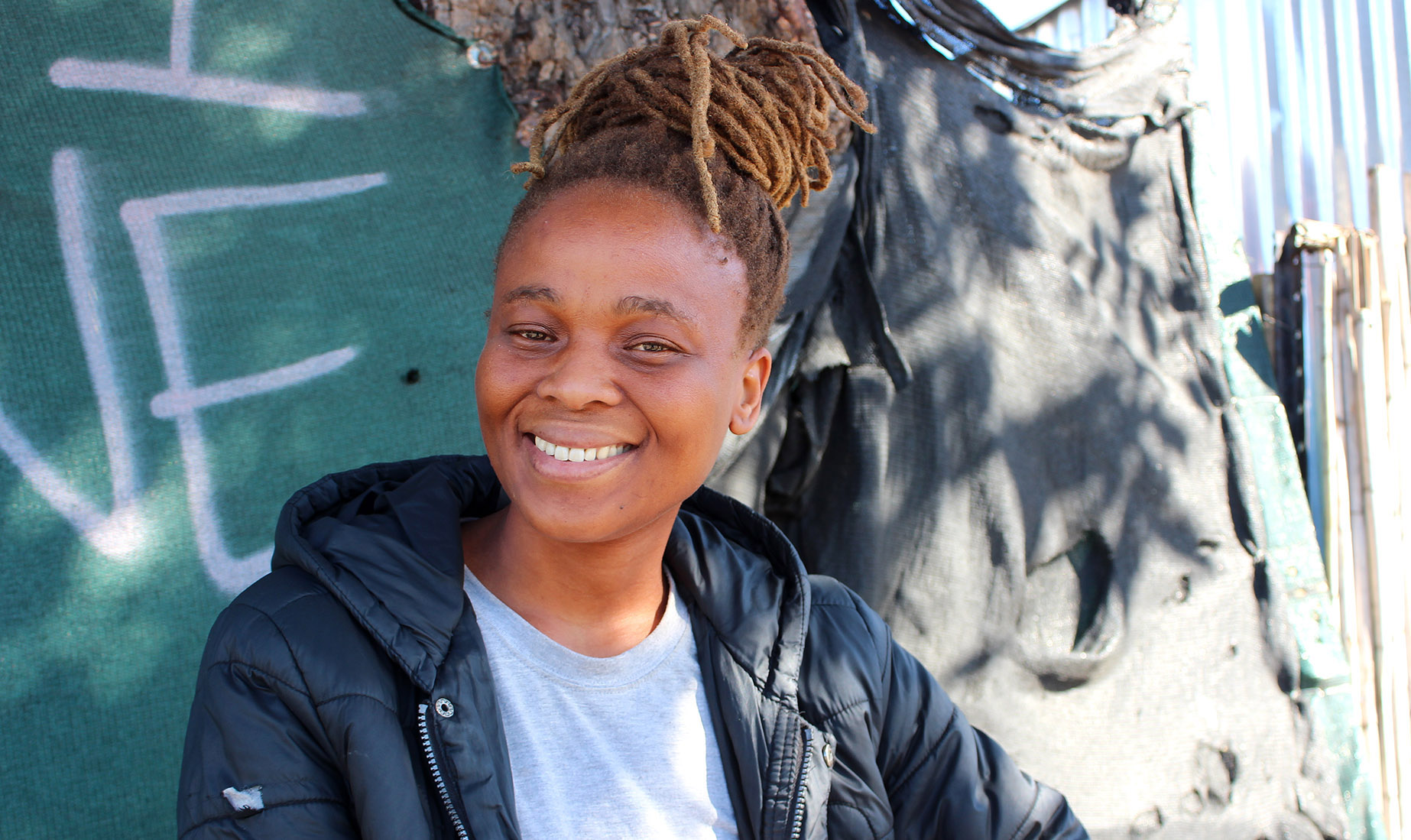
Aviwe Vezi, an attorney, says that the strike has been extremely stressful. She is hesitant to use Uber because of the widespread disruption by the taxi industry. (Photo: Tamsin Metelerkamp)
‘There is still much work to be done to honour the value of women’ – Aviwe Vezi
Aviwe Vezi, an attorney living in Observatory, said the strike had been extremely stressful. She said she was reluctant to use Uber amid the tension and violence.
“The strike is widespread around Cape Town, [but] superiors in my workplace aren’t very understanding. I don’t want to endanger my life since it’s so risky,” she said.
“I wait for transport for more than two hours every morning because I simply don’t want to be in a situation where I feel like my life is in danger.”
When it comes to the problems facing women, Vezi says the government is not helpful. In her profession, she feels women aren’t given enough opportunities or confidence.
“More men in our workplaces don’t want to see us in high positions, and there isn’t a sense of upliftment – it’s just stereotypes. Therefore, there is still much work to be done to honour the value of women.”
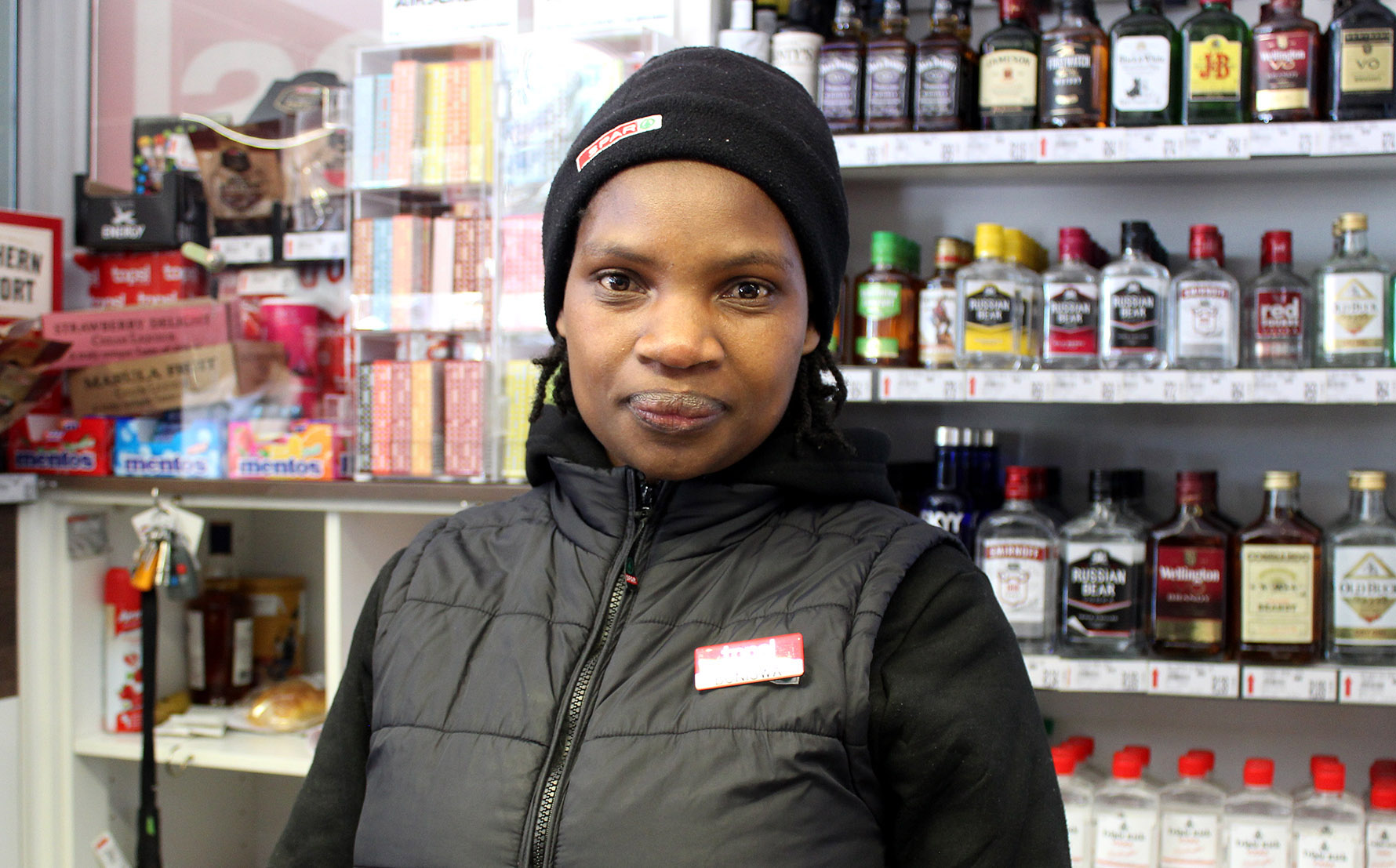
Boniswa Sobetwa, a cashier at the Tops at Spar in Observatory, Cape Town, says this Women’s Day does not feel like a holiday due to the ongoing taxi strike. Her daily commute to work has gone from 20 minutes to about four hours. (Photo: Tamsin Metelerkamp)
‘It doesn’t feel like a holiday’ – Boniswa Sobetwa
For Boniswa Sobetwa, a cashier at the Tops at Spar in Observatory, the taxi strike has transformed her 20-minute commute into a four-hour journey.
“This strike is going to make history … It has affected me getting to work a lot because I stay in Gugulethu. So, I have to walk about 20 minutes, 25 minutes, to Manenberg, and then from Manenberg, I get the bus, which takes about 30 minutes to one hour. They come from Khayelitsha, and by the time they get to us they are full,” she said.
Sobetwa’s eldest child, who attends Thandokhulu High School in Khayelitsha, has been unable to attend classes. On the first day of the strike, when local taxi drivers abruptly stopped taking passengers, his trip back from school took five hours.
“[Today] doesn’t feel like a holiday because they’re still on strike,” said Sobetwa.
“I’m even surprised when I hear them say ‘Happy Women’s Day’ to me. The strike has taken over.” DM



















Comments - Please login in order to comment.